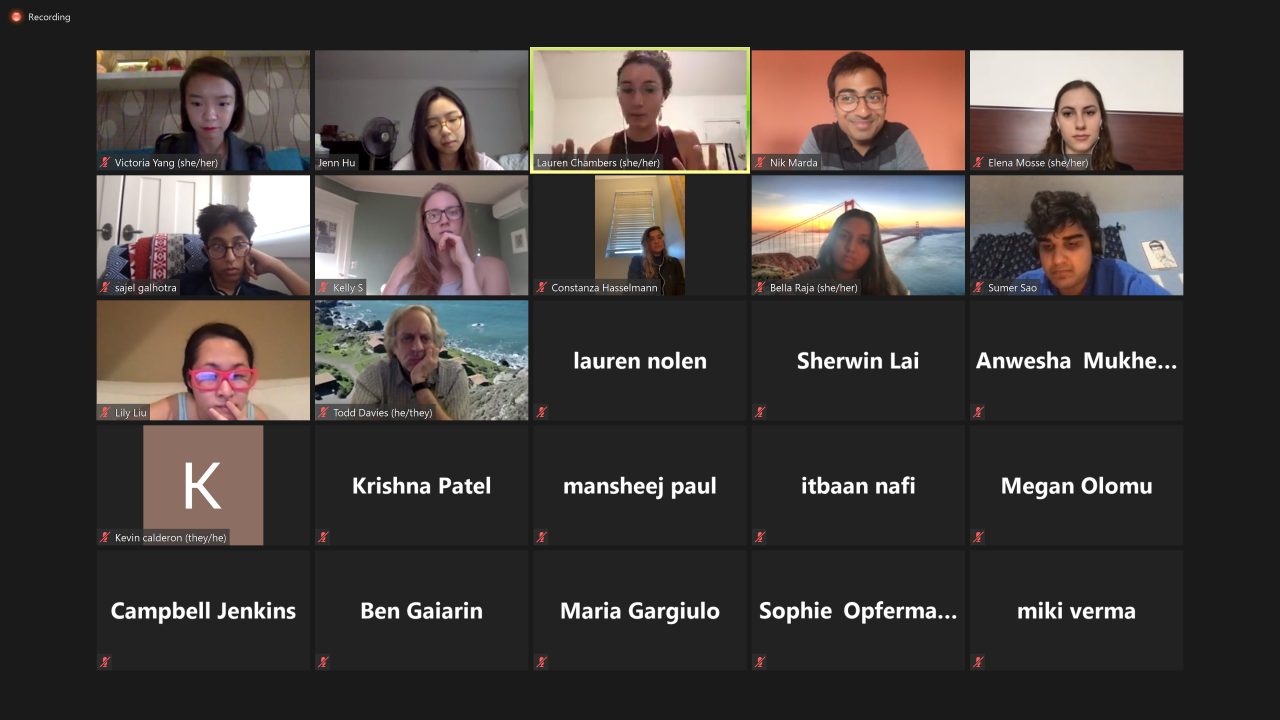It is crucial that data scientists use their work to hold state and federal governments accountable for racial inequality and neglect across social institutions, said Lauren Chambers, a technology fellow at the American Civil Liberties Union of Massachusetts, at a Monday talk.
Chambers’ event kicked off the Public Interest in Technology (PIT) Lab’s 2020-21 speaker series. The PIT Lab is a student organization that works to steer the development of technology toward the improvement of societal structures and systems. The lab was founded in 2019 under the aegis of the Stanford Law School Legal Design Lab and its director Margaret Hagan.
Chambers recently published studies that analyze the appropriations under the Boston City Budget, the pay structure within the Boston Police Department and the disparate impact of the COVID-19 pandemic on people of color.
“[Quantitative analysis] has been something that has allowed the general public and advocates to hold the government accountable,” Chambers said. “For example, in my case, to hold the [Massachusetts] governor accountable and advocate for the release and stewardship of those who are incarcerated and in the care of the state.”
Chambers said that recent technological innovations can pose danger to historically marginalized groups. She specifically noted the risks of facial recognition software, a technology that Stanford researchers found can “show significant disparities in the accuracy of gender classification between light-skinned and dark-skinned individuals.”
Chambers urged technological innovators to exercise caution and seriously consider the impact of their technology on both marginalized groups and society as a whole.
“We’ve got a lot of really smart technology coming out, and we’ve got a lot of people who are using it without necessarily having a mindset toward civil liberties,” Chambers said. “So we are looking at the ways that we have been able to use tech responsibly, hopefully in support of advocacy that we’ve been doing.”
Lab founder and co-president Constanza Becker Hasselmann ’21 said that the talk helped Lab members learn about the impact of creating technologies beyond a company’s “bottom line.”
The Lab has over 60 undergraduate students working on approximately 10 projects ranging from studying the growing influence of big tech on campus to implementing new classes in the Stanford curriculum to working on policy issues with think tanks such as New America, according to Lab co-president Nik Marda ’21.
“[Our initiatives] were the reason why we were so thrilled to have [Chambers] join us today,” said Marda, who has also written for The Daily. “Those are very in line with the types of problems that we work on, so it was very insightful to have her kick off our speaker series this year.”
Through its partnership with the Law School, the PIT Lab works toward the Legal Design Lab’s mission of using “human-centered design, agile technology development, and empirical research methods to create meaningful new interventions in the justice system,” according to the Lab’s website. Hagan said that she took on an advisory role in the PIT Lab to help bridge computer science, social science, design, law and ethics at the undergraduate level.
“The goal was to open more opportunities for students in different disciplines to identify ways that their skills and knowledge could contribute to social good,” Hagan said. “It was also to encourage more leadership among students to identify projects and career paths in public interest tech.”
According to Hasselmann, the Lab draws on perspectives from experts in many fields in order to better understand and promote responsible technological innovation.
“Part of the reason that the lab was founded was because we care deeply about the role of technology in society, but didn’t necessarily see a place for that, for someone who wasn’t an engineering major or who didn’t study computer science to get involved,” Hasselman said. “One of the most important things that we’re seeing as we create this community is that so many people care and are willing to engage in discussions like the one we had today.”
Contact Tammer Bagdasarian at tbag ‘at’ stanford.edu.
